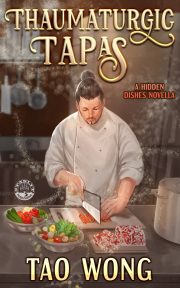Translation for Video Games: An Interview with Kristin Osani
Editor’s note: This piece is part of the series Perspectives in Translation, where creators discuss the many facets and challenges of translating fiction. The terms “source language” and “target language” will be used throughout this series.
Translation is always a challenging process and can become even more complicated when audiovisual materials are involved. Here, SFWA member and Japanese-to-English translator Kristin Osani answers questions from SFWA Publications Crew member Misha Grifka Wander about translating for video games.
Misha Grifka Wander: Thanks for virtually sitting down with me today! What is your background in translation?
Kristin Osani: I’ve been a freelance Japanese-to-English translator and editor since 2015. I’ve worked on games such as The Kids We Were, Voice of Cards, and Triangle Strategy, and I’ve also done a smidge of manga editing for Kodansha USA.
How did you get involved in translation work?
I kind of fell into translation as a career. Funny thing is, I translated Japanese folktales into English for my undergrad thesis, and my conclusion after all that was “Eh, translation’s not for me.” Fast forward a few years to spring 2015, and my partner (who got into video game translation half a year or so prior) and I are at a game localization jam in Tokyo. There, a bunch of folks got together for a day to translate a small indie mobile game, and I’m on the editing team and really enjoying it. At the same event just happens to be a representative from a well-established translation agency, who gives me her card and tells me that they don’t hire freelance editors, but I should take their translation test anyway. So I do, even though I’m certain I’m going to fail it. I pass.
What are some unique considerations that video games require from translators?
You may be working on the words, but you have to take any visual and audio elements of the game into account as well. Line limitations can be a headache because you only have so much space to work with in any given text field. Especially with Japanese as the source language, it can often get across much more information more compactly than English. There’s also text that is part of the graphics, which either can’t be changed (depending on budget) or needs to be fixed early in the process so the graphics team has time to make those changes to the assets. If you’re working on a game that is going to be voiced and the character mouths are animated to match the Japanese, you need to take those lip flaps into consideration and try to recreate the pace and timing as closely as possible.
What is the most challenging aspect of translating for games? Do you have a story about a particularly tricky or interesting translation?
Unfortunately, NDAs restrict me from talking about anything specific, but to speak generally, we often don’t get a build of the game to reference and can end up needing to work without critical context in some cases. We can ask questions, of course, but we may not get answers in time—or at all. I mentioned above needing to match the English pace and timing to source language lip flaps. Sometimes the English translation happens before the source language voice-over is even recorded, which means there’s no official reference, and you just have to give it your best guess. When a game gets translated while being under development in its source language, the process is pretty tricky because things such as character names, terminology, and plot are constantly in flux.
Is there something that other people might be surprised to know about translating (for video games or otherwise)?
At least for the type of translation that I do, creative writing ability in the target language (English, in my case) is just as important as competency in the source. And a lot of your time is spent researching to try and hunt down the meaning/nuance of a slang term or expression, or a niche pop culture reference, or a specific historical event, or any number of random things. Another thing that might be surprising is that we are often not credited, and even when we are, we can’t talk publicly about our work because of NDAs.
Is there any conversation about changing how credits work so translators can be acknowledged?
Oh, absolutely. Getting proper credit (and even being able to talk about your involvement in a project—thanks NDAs!) has been a problem, especially among freelancers, for as long as I’ve been in the industry. It’s an especially big issue when you’re working with certain middleman translation agencies, which either don’t care to advocate for translator names to be included in the credits, or will only allow the agency’s name, and won’t give the client the translators’ names even if the client asks. The agencies that don’t credit will claim it’s to protect their translators, but it’s more likely a way for them to maintain their middleman position. If the client doesn’t know who the translator is, they can’t hire them directly, and if the translator can’t build a public portfolio, they can’t search around for work on their own, becoming reliant on agencies to find projects. Personally, I think these agencies wouldn’t need to resort to such underhanded tactics if they treated/paid their freelance translators better, but that’s a whole different can of worms…
What else should people know about the process of video game translation?
It varies by project, of course, but often there are so many layers that translations have to go through to make it into the final product. Initial translation, edits, iterations, client feedback, to say nothing of possible motion capture or voice recording… Because it’s collaborative, the best projects—in my opinion—aren’t the flashiest, most famous ones (though those are nice to brag about, assuming you’re allowed to), but the ones where you’re part of a team of awesome people all working together to make the most awesome thing they can.
What kind of tools are available to translators for their work?
The tools we use vary depending on the project. Excel is common, as are Computer Assisted Translation (CAT) tools such as MemoQ and Trados. Some larger companies even have their own proprietary tools. Other than that, online dictionaries (for both your source language and your target language) and search engines are your best friends.
Are there communities for translators, and do they involve resource sharing? Or is translation a solitary endeavor?
Since freelancers can be so spread out around the globe, a lot of our community seems to be online via platforms like Bluesky and Discord. I think there are Facebook groups as well, though I haven’t used Facebook in years. There are in-person meet-ups I’m aware of in Osaka and Tokyo, though again I haven’t been to any since before 2020. I imagine there are likely similar meet-ups in other cities, especially ones that are home to companies with in-house translation departments.
Slightly unrelated, but friend and colleague Jennifer O’Donnell has a fantastic blog that I always recommend to people interested in joining the field: J-En Translations.
Thank you for your time and for sharing your thoughts with us!
 Kristin Osani (she/her) is a queer fantasy writer who lives with her husband in northeastern Japan, where she works as a freelance Japanese-to-English translator when she’s not wordsmithing, working on nerdy cross-stitching, or cuddling her two cats. She has translated games such as The Kids We Were, Voice of Cards, and Triangle Strategy, and has also edited manga for Kodansha USA. Her debut novella The Extravaganza Eternia was published with Ghost Orchid Press in July 2024. You can find her on Bluesky @kristinosani.bsky.social, Instagram @Kristin.Osani, or kristinosani.com.
Kristin Osani (she/her) is a queer fantasy writer who lives with her husband in northeastern Japan, where she works as a freelance Japanese-to-English translator when she’s not wordsmithing, working on nerdy cross-stitching, or cuddling her two cats. She has translated games such as The Kids We Were, Voice of Cards, and Triangle Strategy, and has also edited manga for Kodansha USA. Her debut novella The Extravaganza Eternia was published with Ghost Orchid Press in July 2024. You can find her on Bluesky @kristinosani.bsky.social, Instagram @Kristin.Osani, or kristinosani.com.



